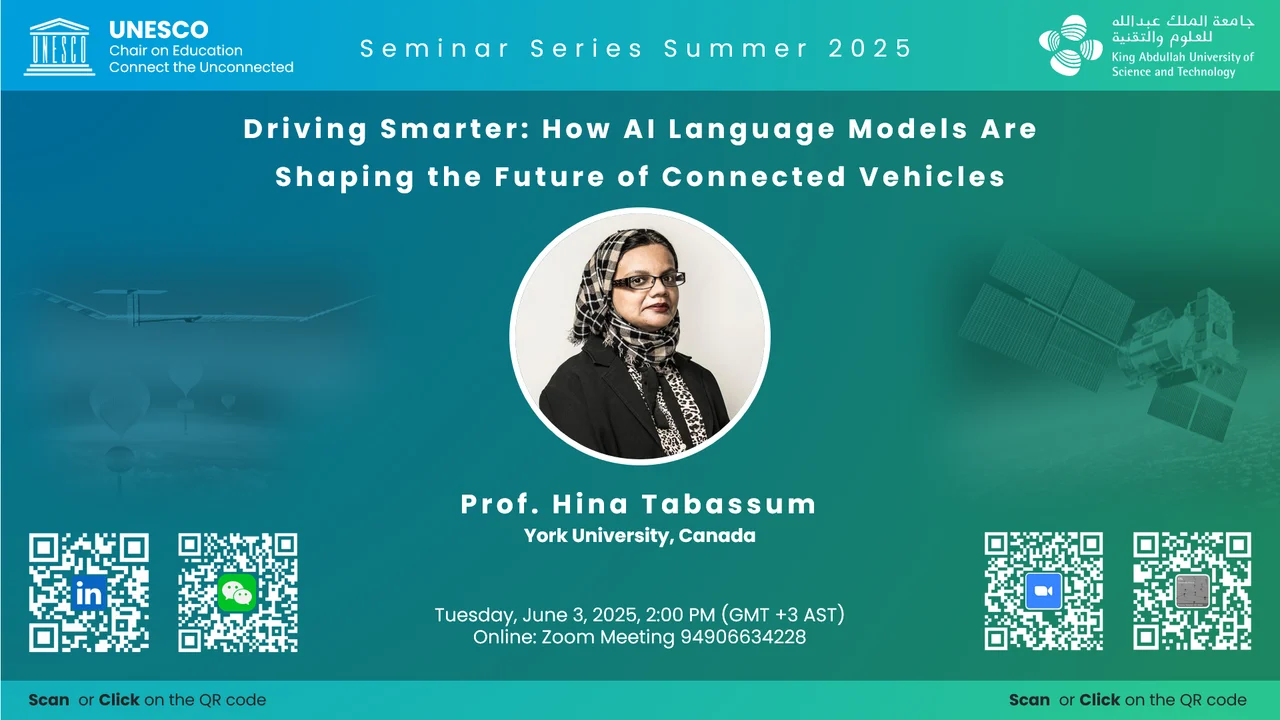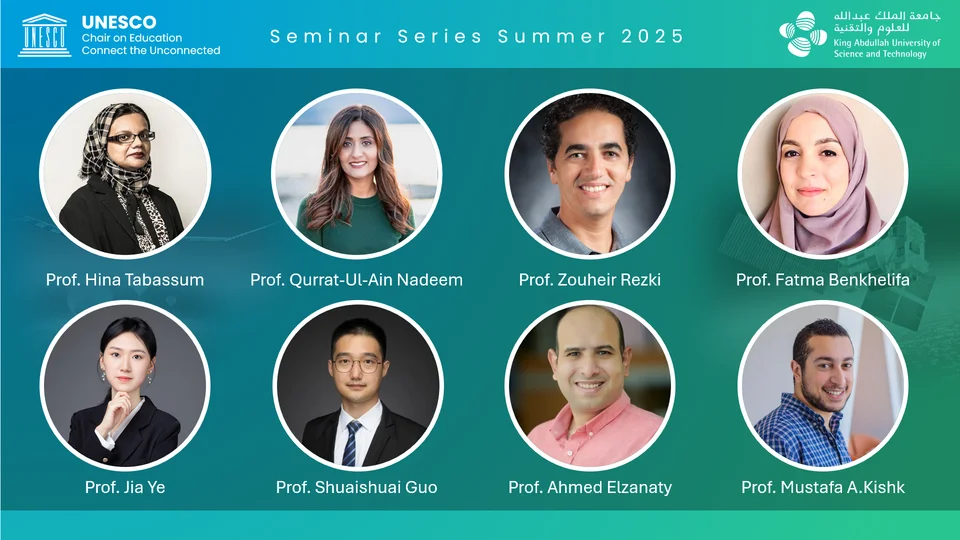
Driving Smarter: How AI Language Models Are Shaping the Future of Connected Vehicles
Overview
Recent breakthroughs in artificial intelligence, especially large language models (LLMs), are reshaping what’s possible in automation and smart systems. This talk explores how LLMs can be applied to the world of connected and autonomous vehicles, helping improve decision-making for both vehicle control and communication with roadside network infrastructure. This talk will introduce a new approach that combines the strengths of LLMs with reinforcement learning to optimize two key areas: safe and efficient autonomous driving, and reliable vehicle-to-infrastructure (V2I) communication. LLMs are used to help vehicles learn from past experiences—both good and bad—to make better driving decisions. These decisions then inform a deep reinforcement learning system, which optimizes how vehicles communicate with infrastructure to ensure strong data connections and fewer disruptions. By iterating between these two components, performance gains will be demonstrated in terms of traffic flow, fewer accidents, and smarter use of network resources. The talk will conclude by discussing the future research directions related to trustworthy AI solutions.

Presenters
Hina Tabassum, York University, Canada
Brief Biography
Hina Tabassum received the Ph.D. degree from the King Abdullah University of Science and Technology (KAUST). She is currently an Associate Professor with the Lassonde School of Engineering, York University, Canada, where she joined as an Assistant Professor, in 2018. She is also appointed as a Visiting Faculty at University of Toronto in 2024 and the York Research Chair of 5G/6G-enabled mobility and sensing applications in 2023, for five years. Prior to that, she was a postdoctoral research associate at University of Manitoba, Canada. She has been selected as IEEE ComSoc Distinguished Lecturer (2025-2026). She is listed in the Stanford’s list of the World’s Top Two-Percent Researchers in 2021-2024. She received the Lassonde Innovation Early-Career Researcher Award in 2023 and the N2Women: Rising Stars in Computer Networking and Communications in 2022. She has been recognized as an Exemplary Editor by the IEEE Communications Letters (2020), IEEE Open Journal of the Communications Society (IEEE OJCOMS) (2023-2024), and IEEE Transactions on Green Communications and Networking (2023). She was recognized as an Exemplary Reviewer (Top 2% of all reviewers) by IEEE Transactions on Communications in 2015, 2016, 2017, 2019, and 2020. She is the Founding Chair of the Special Interest Group on THz communications in IEEE Communications Society (ComSoc)-Radio Communications Committee (RCC). She served as an Associate Editor for IEEE Communications Letters (2019-2023), IEEE OJCOMS (2019-2023), and IEEE Transactions on Green Communications and Networking (2020-2023). Currently, she is also serving as an Area Editor for IEEE OJCOMS and an Associate Editor for IEEE Transactions on Communications, IEEE Transactions on Wireless Communications, IEEE Transactions on Mobile Computing, and IEEE Communications Surveys & Tutorials.
